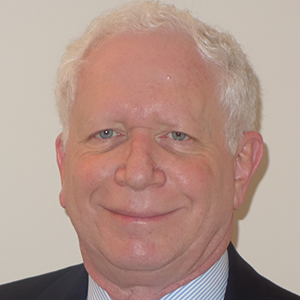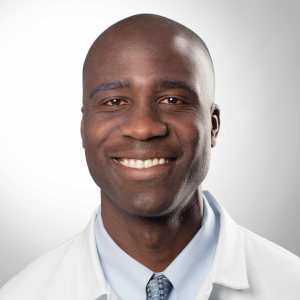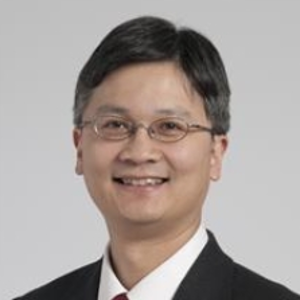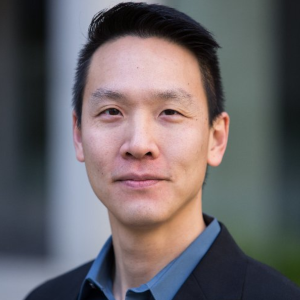Session Abstract – PMWC 2019 Silicon Valley
Session Synopsis: The integration of multiple ‘omics’ technologies will allow us to gain a more complete picture of the constituents and mechanisms of various diseases including cardiovascular disease. This session will touch upon various “omics” technologies – genomics, transcriptomics, proteomics, and microbiomics – and their applications to uncover the complexity in cardiovascular disease mechanism and progression.
Session Chair Profile
M.D., Chief of Cardiology, Zuckerberg San Francisco General Hospital; Maurice Eliaser Distinguished Professor of Medicine, UCSF
Biography
Dr. Peter Ganz is the Chief of Cardiology at the Zuckerberg San Francisco General Hospital and Maurice Eliaser Distinguished Professor at UCSF. Dr. Ganz has been a pioneer in translational cardiovascular research. He was the first to publish on vascular endothelial function in health and its dysfunction in atherosclerosis in humans (N Engl J Med 1986; 315:1046-1051). Currently, Dr. Ganz is making important discoveries in the field of proteomics, using modified aptamers as binding reagents to quantify proteins in blood (JAMA 2016;315:2532-2541). Relevant to his presentation, he is improving assessment of drug safety through proteomics (http://doi.org/10.1161/CIRCULATIONAHA.117.028213). Dr. Ganz received his M.D. from Harvard, completed his residency at the Massachusetts General Hospital and cardiovascular fellowship at the Brigham and Women’s Hospital. He spent 25 years directing cardiovascular research in the cardiac catheterization laboratories at the Brigham and Women’s Hospital and Harvard Medical School, prior to arriving to UCSF in 2008.
Speaker Profile
M.D., Ph.D., Associate Professor-in-Residence, David Geffen School of Medicine, UCLA

Biography
Dr. Ladapo is a physician and health policy researcher whose primary research interests include assessing the cost-effectiveness of diagnostic and therapeutic technologies and reducing the population burden of cardiovascular disease. He graduated from Wake Forest University and received his MD from Harvard Medical School and his PhD in Health Policy from Harvard Graduate School of Arts and Sciences. Dr. Ladapo’s research program, funded by the NHLBI, NIMHD, and RWJF, focuses on (1) patient-centered approaches to improving the health of individuals evaluated for cardiovascular disease, and (2) behavioral economic interventions to promote sustainable cardiovascular health, including among adults with HIV. He also leads the health economic evaluation of multiple NIH-funded trials. His national honors include the Daniel Ford Award for health services and outcomes research, and he was also a regular columnist for the Harvard Focus during medical school and residency, where he discussed his ward experiences and health policy issues.
Speaker Profile
M.D., Professor in Medicine, Cleveland Clinic Lerner College of Medicine at CWRU

Biography
W. H. Wilson Tang, MD, is Director of Cleveland Clinic’s Center for Clinical Genomics; Research Director, and staff cardiologist in the Section of Heart Failure and Cardiac Transplantation Medicine in the Sydell and Arnold Miller Family Heart & Vascular Institute at the Cleveland Clinic. Dr. Tang is Professor of Medicine at the Cleveland Clinic Lerner College of Medicine of Case Western Reserve University. Dr. Tang is a clinician-scientist interested in clinical translational research, with joint appointments with the Department of Cellular and Molecular Medicine and the Genomic Medicine Institute at Cleveland Clinic’s Lerner Research Institute. He leads the Cleveland GeneBank Study as well as the Cleveland Heart and Metabolic Prevention Study to investigate novel mechanisms in the development of heart diseases. Dr. Tang’s current research interests include the role of counter-regulatory mechanisms in the development and progression of heart failure, integrative genomics and epigenetics in cardiomyopathies, and metabolomics in cardio-renal physiology. Dr. Tang is currently the Principal Investigator for the Cleveland Heart Failure Network as part of the National Heart Failure Clinical Research Network for translational clinical trials.
Speaker Profile
M.D., M.P.H., Cardiologist and an Assistant Professor, Division of Cardiology, UCSF Health

Biography
Dr. Tison is an Assistant Professor of Cardiology and Medicine at the University of California, San Francisco. His research focuses on cardiovascular disease prevention, using statistical and machine learning techniques to analyze large-scale data from both traditional medical sources and novel sensors. Dr. Tison received his M.D. and M.P.H. degrees from the Johns Hopkins Schools of Medicine and Public Health, and trained in internal medicine at the Johns Hopkins Hospital. He subsequently completed fellowships in clinical cardiology, advanced echocardiography and preventive cardiology at UCSF. He obtained formal training in epidemiology, statistics and machine learning during his tenure at the Johns Hopkins Bloomberg School of Public Health and as a National Institutes of Health T32 scholar.








